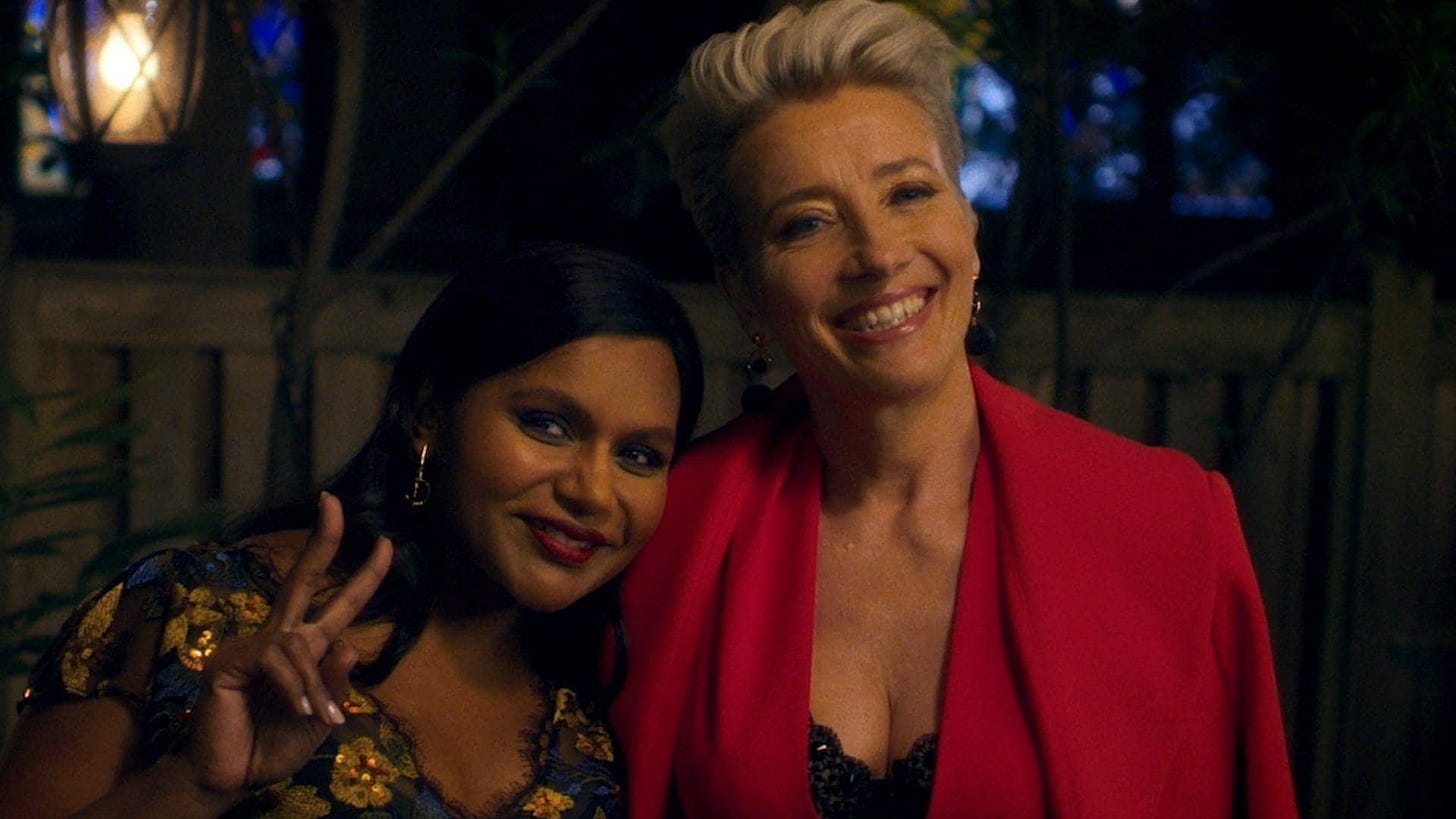Late Night
Mindy Kaling and Emma Thompson both shine in this smart, sharp and surprisingly sentimental look at feminine relationships in the cauldron of showbiz.
"Late Night" operates as a good companion piece to "Bookmart," which came out just a few weeks earlier. Both are about female relationships, how they can be so important and so complicated. The first movie centered on high school kids, while "Late Night" looks at a professional conflict between an older Millennial and a younger Boomer.
It's written, produced and stars Mindy Kaling as a youngish new writer for a legendary late night talk show host played by Emma Thompson. Kaling's script has television rife through its DNA, but I guess that's not too objectionable since it's about a TV show. It begins wickedly sharp and funny, and grows surprisingly sentimental as it goes along.
The movie starts out aiming for laughs, and gets them, and then shoots for the heart, and nails that, too.
I liked Kaling as Molly Patel, who's added to the roster of writers after it's pointed out that "Late Night with Katherine Newbury," on the air for 27 years, doesn't have any female writers. She's wholly unqualified for the job, working in quality control for a chemistry plant in Pennsylvania, but she's got a nose for funny and for what's true.
Thompson is the real revelation as Katherine. It's a fierce and amazing performance. Katherine is domineering and often downright nasty. On Molly's first day, she's astounded to discover that most of the writers have never actually met their boss before. Too harried and contemptuous to learn their names, Katherine assigns each of the writers numbers so she can call on them more easily, and shoot down their ideas.
It's a role that reminds me a lot of Meryl Streep in "The Devil Wears Prada," though Kaling's script and director Nisha Ganatra grant Katherine a lot more interior real estate to explore. In fact, about halfway through it stops being Molly's story and really becomes Katherine's.
I loved how the two women talk to each other. Molly is a bit of a wallflower but not afraid to stand up for herself. When Molly expresses her qualms about being seen as a token diversity hire, Katherine brazenly tells her that's exactly what she is. But then she advises her to go earn her place.
Katherine's show has become tired, out of touch, favoring chats with authors or intellectuals instead of cracking topical jokes. Think David Letterman during the last years of his show: still funny, but you got the sense he was coasting and more than a little annoyed at having to chat up celebrities and entertain audiences.
Early on we learn that the new network president (Amy Ryan) wants to push Katherine out. This propels her to try to reinvent herself, get a little more personal and political. Molly acts as her Svengali, urging her to get out of the studio, connect with people and do fun bits that can go viral.
Reid Scott and Hugh Dancy play Tom and Charlie, lead writers on the show who resent Molly's presence but gradually start to warm up. There's even a budding romance with Charlie, though the movie misplaces his character in the second half.
Denis O'Hare is a solid presence as Brad, Katherine's dependable right-hand man; John Lithgow plays Katherine's eternally supportive husband, Walter, who can see past the casual cruelty to the person underneath; Ike Barinholtz is a hot young insult comic who is held up to Katherine as the wave of the future, much to her revulsion.
One of the most interesting things about "Late Night" is its portrait of showbiz and the types of neurotic personalities that thrive there. Katherine treats her staff like cattle, firing people on a whim, and they in turn crave any scrap of attention from her. "We're not here because you're nice. We're here because you're good," Brad says.
This is a movie that works as both an insider's view of TV comedy and as a character piece about two women clashing and connecting. We instinctively like Molly, and just as instantly loathe Katherine. But by the end we understand what makes these women tick and feel less impulse to judge them, but simply embrace them as they are.



